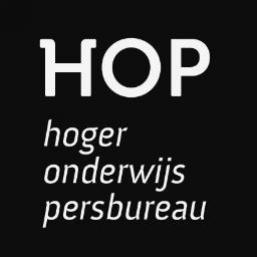
Minister accepts controversial fixus on English language education
It didn’t turn out as it should have, Minister Robbert Dijkgraaf thinks. But he no longer opposes the VVD amendment that allows a cap on foreign students, he informs the Senate.
Last February, the House of Representatives accepted a VVD amendment that allows a numerus fixus for educational tracks. It allows programs to put a cap on an English language track to specifically keep out foreign students, without affecting students in the Dutch language track.
That change in the law was controversial, although not necessarily substantively. The House of Representatives, the minister, and educational institutions all wanted this for a long time. The controversy was constitutional since the amendment was submitted during the budget debate. The Senate cannot simply reject the amendment. It can only do so by rejecting the entire Education Budget.
Outgoing Education Minister Robbert Dijkgraaf strongly advised against the proposal, if only for constitutional reasons. When talking about the budget law, you can’t just change another law (on higher education), he believed. This is what it says in the rules of the House of Representatives.
Critical questions
Now the same discussion begins in the Senate, but with one important difference: the minister is abandoning his opposition, according to his answers to critical questions from the Senate.
Can this be done, such a substantive change in the law through the budget, the Senate asked?
No, it is unusual and undesirable, Dijkgraaf still thinks. But he apparently does not welcome further delay. The minister has shared his “institutional-state-law objections” in the debate with the House of Representatives, which is ultimately in charge of this, he says.
Should the Council of State give an emergency opinion on the amendment? Not necessary, Dijkgraaf believes, because you can identify the criticism. The Council has said many times before that budget laws should not be abused in this way. In addition, the Council of State has advised on the substance of the amendment before, when the previous Minister of Education also proposed it.
Indirect discrimination
Then there is the problem that the numerus fixus, through the language of instruction, indirectly discriminates between Dutch and foreign students. But that is possible, says Dijkgraaf, if there are good reasons for it.
If a program can no longer handle the intake, he reasons, it has good reason to institute a student freeze. In addition, the fixus is useful not only for English language study programs but for all programs. You can also apply it only to the Dutch language variant or to an educational track in another city. The law itself does not discriminate.
“It is then up to the institutional board to weigh whether the use of the instrument is appropriate and necessary to achieve a legitimate goal,” Dijkgraaf said.
So colleges and universities themselves must be careful not to discriminate if they institute such a fixus.
Rush
The House of Representatives used the budget bill out of impatience. Dijkgraaf had been working on his Internationalization in Balance Act for far too long, many parties felt, so they took matters into their own hands in February. They hoped programs could use the pathway fix as early as the 2025-2026 academic year.
But the amendment was less than a day old when Dijkgraaf shattered that illusion. The House may be in a rush, but “it is highly uncertain whether time will be saved by passing this amendment,” the minister said at the time.
You can’t just flip the system, he explained. Even if politicians are in a hurry, it is programs that must set up selection procedures and adjust the enrollment process together with Studielink. Studielink has previously indicated that this will take four years, Dijkgraaf says, although perhaps it could be done a little faster.

